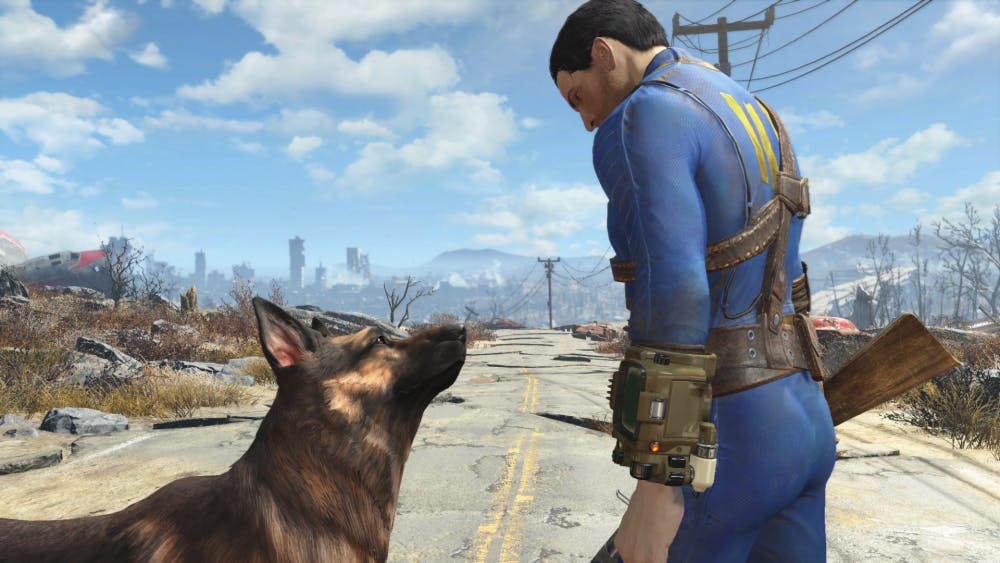Tuesday sees the highly anticipated release of Bethesda Game Studio’s latest work: “Fallout 4.” As with most of Bethesda’s work, gameplay revolves around exploring a vast world, with each area having its own story.
In contrast to other narrative role playing games such as BioWare’s work in “Mass Effect” and “Dragon Age,” “Fallout” and its cousin “The Elder Scrolls” rely heavily on player driven interaction with the world, rather than relationships with a party of characters. The world exists solely at the pleasure of the player, allowing for narrative to unfold at a more organic pace. By and large, there are no events that force the player to progress. As we have seen with “The Elder Scrolls V: Skyrim,” some have sunk hundreds of hours into the game without having completed the main quest, instead finding amusement in building personal estates, leveling up crafting skills or seeking to liberate “Skyrim” exclusively for the Nords.
The advent of YouTube streaming, the proliferation of open-world sandbox games and the vast positive buzz word of mouth generates means developers are increasingly focused on “emergent gameplay,” or stories that players create for themselves. This mentality is best encapsulated by the advertising slogan for the 2014 open world shooter “Far Cry 4” — “Every Second is a Story”.
The increasing reliance on emergent gameplay to tell a story is a trend that has provoked mixed reactions, but ultimately depends on one’s conception of a videogame. If you are of the belief that a video game should really be an experience carefully guided by the tenants of a skilled developer, then “Fallout” might not hold your interest given its long term value not as a narrative, but as a world. If you want a huge sandbox to play in, then by all means, “Fallout 4” appears to be an absolute tour de force.




